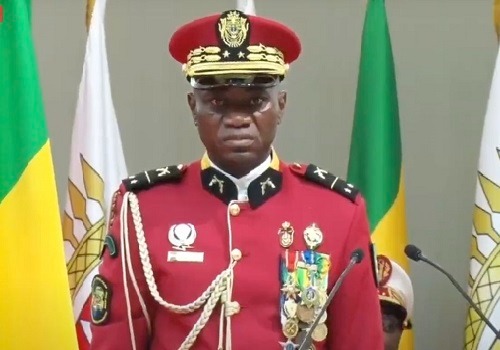Gabon’s military leader, General Brice Oligui Nguema has unveiled his transitional government consisting of representatives from diverse political backgrounds.
Gabon’s transitional Prime Minister, Raymond Ndong Sima, unveiled the composition of a diverse government on Saturday.
This government comprises former adversaries, former ministers from the deposed president Ali Bongo’s administration, military officials, and civil society representatives.
However, notable figures from the former opposition in the presidential election are notably absent.
Mr. Ndong Sima assumed leadership of the transitional government on Thursday, following his appointment by General Brice Oligui Nguema, who orchestrated the coup d’état against Ali Bongo Ondimba on August 30. This coup occurred shortly after Bongo’s disputed re-election in a “fraudulent” election.
Mr. Oligui was inaugurated as the President of the transitional period on Monday, without specifying its duration, with a commitment to eventually “restore power to civilians” through elections.
The announcement of the government’s composition, comprising 26 members, comes two days after Ndong Sima’s appointment. The 68-year-old, who previously served as Prime Minister under President Bongo from 2012 to 2014, distanced himself from the primary opposition platform, Alternance 2023, which united various opposition leaders behind a common presidential candidate, Albert Ondo Ossa.
Notably, Ondo Ossa and other prominent figures from the coalition, such as Alexandre Barro Chambrier of the Rassemblement pour la patrie et la modernité (RPM) or Paulette Missambo of the Union nationale (UN), are not part of the government.
A former member of Missambo’s party, Paul-Marie Gondjout, who left in October 2022 due to internal disputes, has been appointed as the Minister of Justice. According to the transitional charter, members of this temporary government are prohibited from running in the upcoming presidential election, although there are no restrictions on Mr. Oligui’s participation.
The government also includes civil society representatives, such as Mays Mouissi, who has been designated as the Minister of the Economy. Mouissi, an economic analyst, authored a widely circulated report during the campaign titled “105 Promises, 13 Achievements: An Assessment of Ali Bongo’s Second Seven-Year Term.”
Three ministers from Ali Bongo’s previous government have retained their positions. Camélia Ntoutoume-Leclercq remains the Minister of National Education, Hermann Immongault, formerly Minister of Foreign Affairs, now serves as the Minister Delegate for the Interior, and Raphaël Ngazouzé, who previously oversaw vocational training, has assumed responsibility for the Civil Service portfolio.









